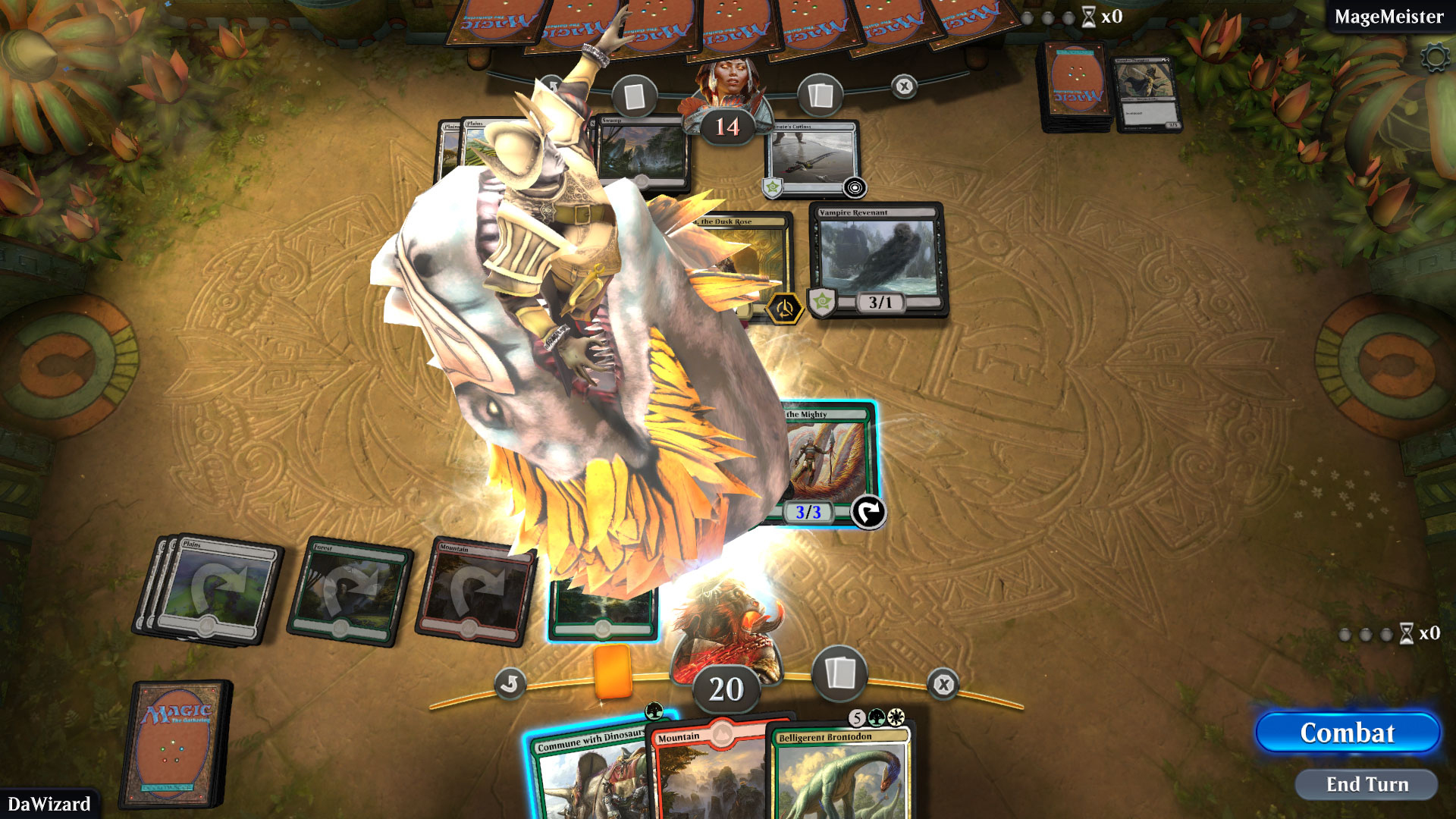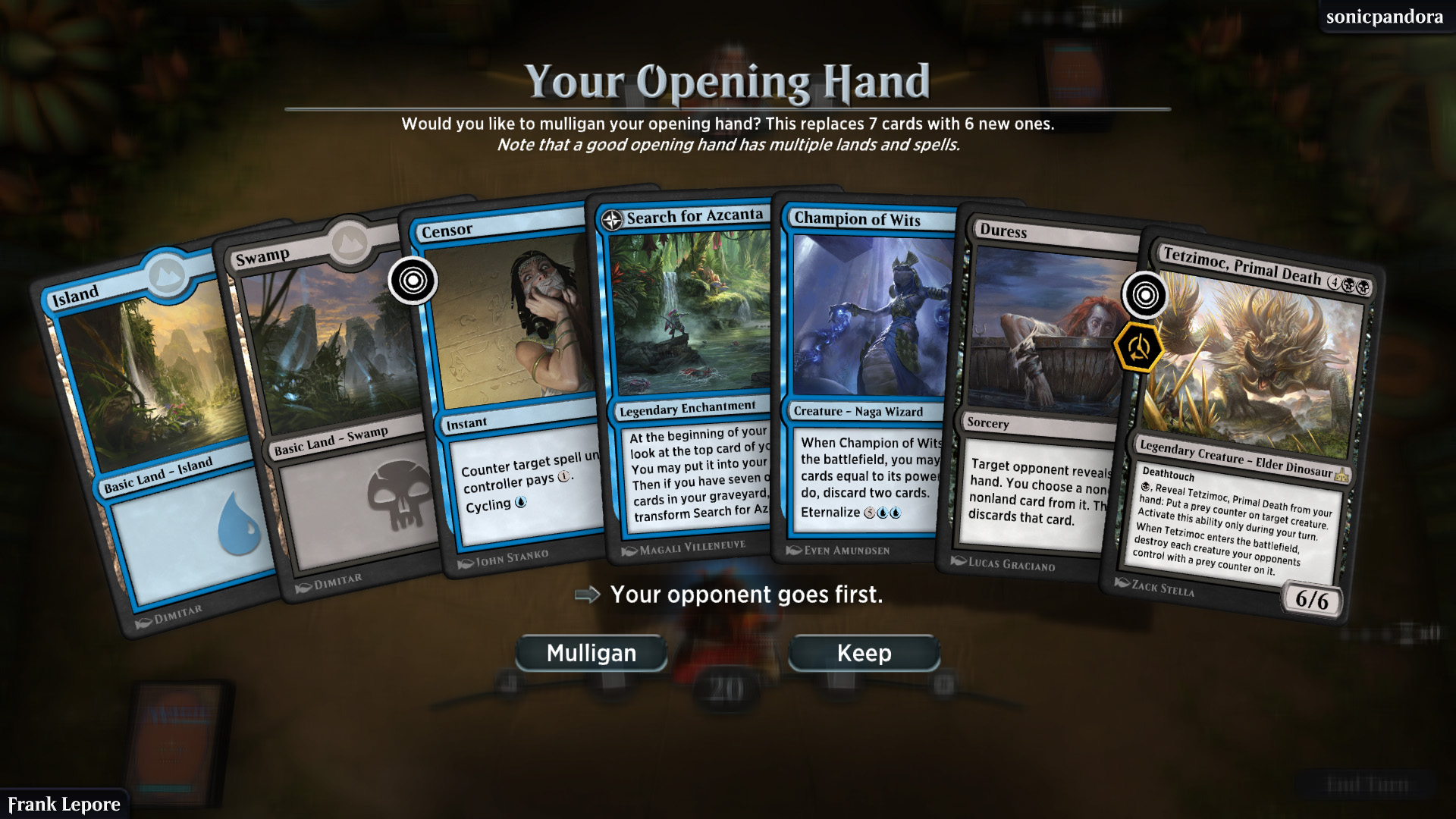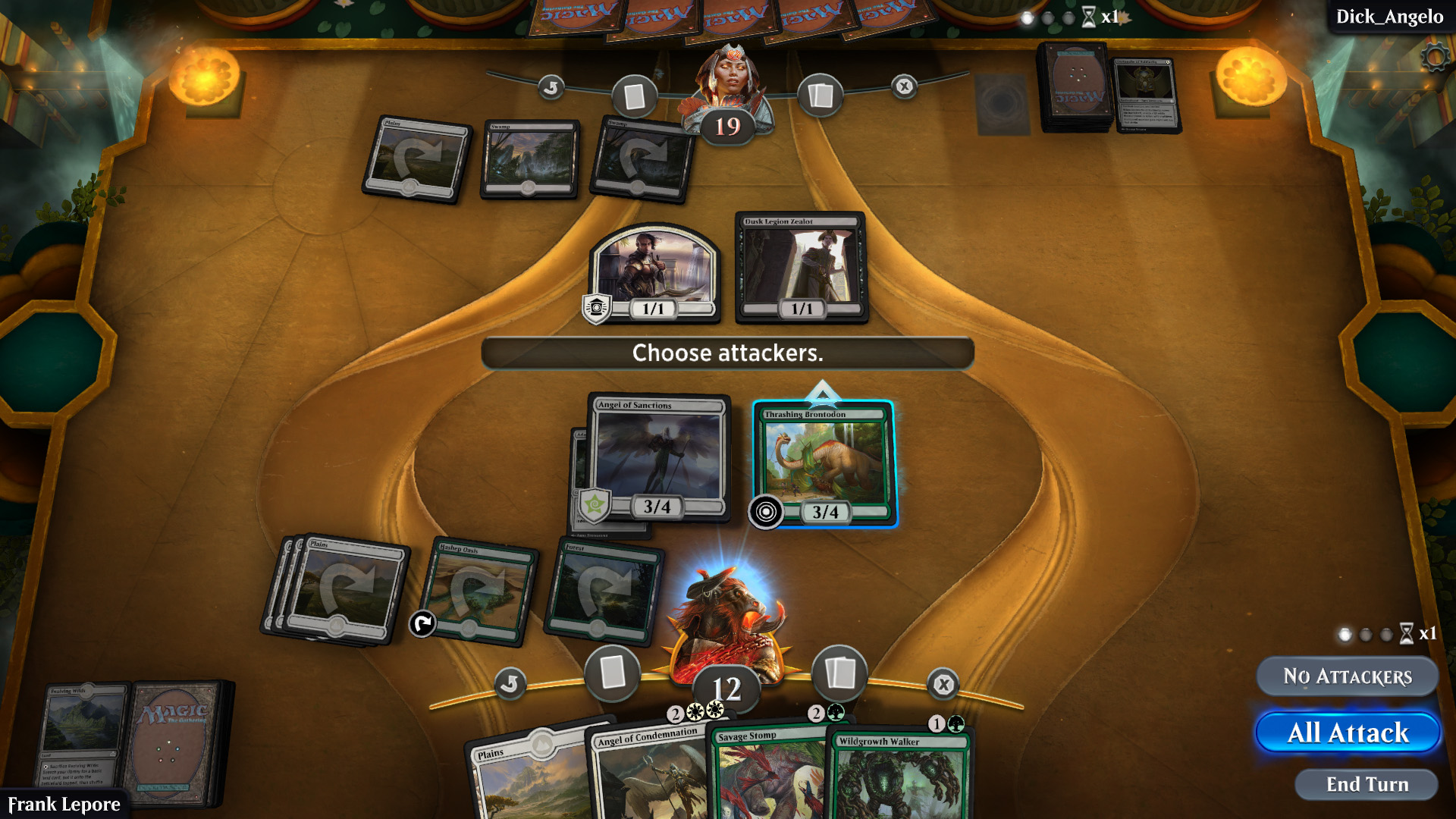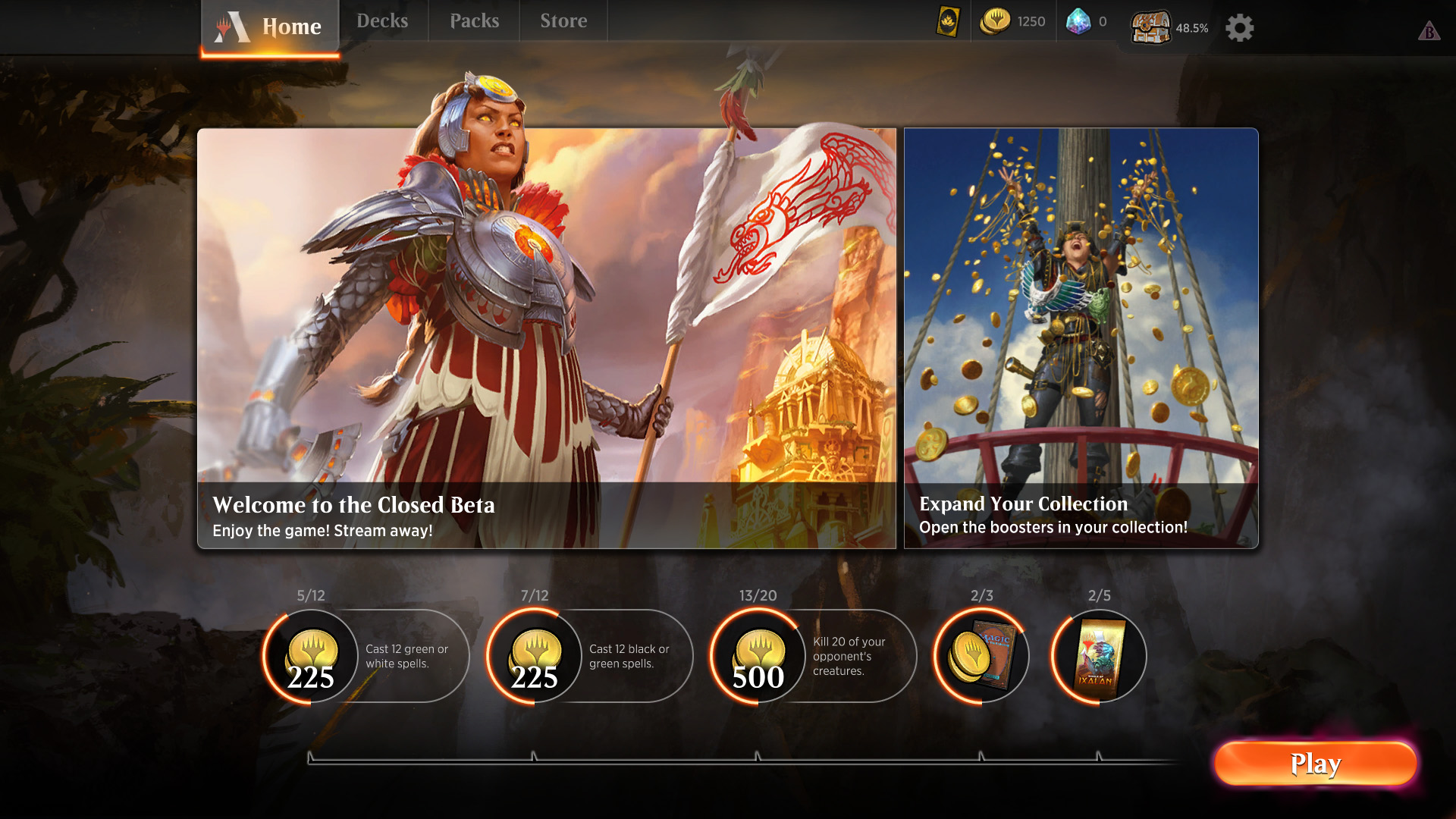MTG Arena hands-on: the next phase of Magic: The Gathering's complicated digital history
Does it capture the complexity of the card game?

On March 22nd, the NDA for MTG Arena, Wizards of the Coast's latest digital offering, was lifted and the world was able to get its first real glimpse of how it performed. Will it be the digital version of Magic: The Gathering everyone had been waiting for, poised to compete with such recent card game hits as Hearthstone or Eternal? Heck, can it compete with Magic's own digital predecessors? What does it have to offer that the alternatives couldn't provide?
The first and longest running iteration of digital Magic was released way back in 2002 in the form of Magic: The Gathering Online or MTGO. This was long before phone and tablet games and, for the past 15 or so years, it has been reserved primarily for purists and professionals. The reason for this was twofold. The first is that Magic: The Gathering has a much more complex rules engine than a game like Hearthstone or Elder Scrolls: Legends, which means that it's much more complicated to emulate that experience on a smaller platform. This complexity has contributed to numerous version updates, interface changes, and complaints about software bugs throughout MTGO's lifespan.
The second is that players simply have a hard time reinvesting the same money they sunk into their paper collections on an online platform—buying their collections twice, so to speak. While a game like Hearthstone can be free-to-play, with incentives like pack discounts and daily quests, MTGO is not such a beast and often mirrors the same costs as its paper counterpart. While MTGO has provided the truest and most authentic Magic-playing experience available online, both of these issues have been huge barriers for the success of Magic in a digital environment.

In 2009, Wizards of the Coast tried a new approach. They released another Magic product called Duels of the Planeswalkers. Unlike Magic Online, this version had more of the aspects we had come to love in other digital card games, but at the cost of some functionality to Magic's intricate rules engine and turn structures. This made it mostly unsuitable for professional players looking to get some practice in or prepare for upcoming events. There were new editions of Duels in 2012, 2013, 2014, and 2015, with the 2014 and 2015 versions being available for the first time on iPad and Android tablets. This was Magic’s first foray into the mobile gaming arena.
Unfortunately, while Duels 2015 was updated through the Amonkhet expansion set in April 2017, it was ultimately cancelled after that, presumably to shift efforts to what I'm going to discuss today: MTG Arena.
Previously, only a handful of players were able to explore the client and see what the game was all about, while unable to talk about or stream the game due to the NDA. This all changed on March 22nd. 100,000 more beta keys were distributed to not only test server load, but to get as much feedback as possible, and those involved are now free to stream the game or discuss it with their friends and audiences. So where does the client stand now? Is it the savior we've been waiting for, or should we expect it to hit Magic's digital graveyard at some point in the future?

As soon as you load up the client, you can see the Hearthstone influence, and it makes sense; Hearthstone is making a killing in the digital card game arena, so why shouldn't the original trading card game get in on the action? Without insulting the depth of Hearthstone—something I have defended ad nauseam—the problem is that it's a much simpler game than Magic, and the client rewards that. There are no actions that take place on your opponent's turn, no way to respond to your opponent's cards, no different steps and phases in a turn, no lands to play or different mana to specifically select.
The biggest gaming news, reviews and hardware deals
Keep up to date with the most important stories and the best deals, as picked by the PC Gamer team.
In Hearthstone, you drag your card to the battlefield, let it go, and that's basically it. The same is true of attacking. A lot of the repetition of MTGO is handled through simple mouse clicks or keyboard hotkeys and I worry that these same repetitions are going to result in hands flailing wildly across tablet screens in MTG Arena.
Don't get me wrong: this is by no means a death knell. Just some initial concerns from someone who has played Magic Online since its inception, and has played Magic: The Gathering for eight years longer than that. There is a lot going on in a single game of Magic and, as previous attempts can attest to, it is a difficult endeavor to accurately represent all of these things in a digital space.

Initial reservations aside, you can certainly see the improvements that have taken place not only from when the program was under its NDA until March 22nd, but also from March 22nd to today. One of the best parts about this undertaking by Wizards of the Coast is that they seem to be readily listening to player feedback, which is huge (if you’ve been playing MTG Arena yourself, be sure and report any issues or suggestions you may have through the proper channels!).
While I question the validity of MTG Arena as an outlet for the professional player, what I don't question is the enjoyability from a more casual perspective. Though some of the current choices can certainly be improved upon—not being able to dispose of cards you don't want, the restrictive crafting system, some of the UI decisions, the lands that are chosen automatically to cast spells and so on—the game is engaging, with enough deck building, card-collecting, and strategic prowess to satisfy your Magic: The Gathering itch, especially while in an airport or on your break at work. The fact that MTG Arena is aiming to accurately represent future Standard and Limited formats moving forward, arguably the two most popular and competitive available, is a huge net positive as well.
Currently I don’t see a way for MTG Arena to usurp Magic Online as the most accurate Magic: The Gathering experience. Programming every old set into MTG Arena in order to play older, competitive formats such as Legacy or Modern could take years. Heck, the Modern format alone would require 54 more sets outside of the already-included Amonkhet and Ixalan blocks! The same is true with older, more casual formats such as Commander and Pauper as well. Meanwhile, all of those sets and formats are readily available on Magic Online.
The trade-offs for this are things like being able to play on your mobile device, or ten minute, single-game matches, and I think these are large enough benefits to justify the existence of MTG Arena in a long-term capacity. While Wizards of the Coast has had a somewhat shaky track record when it comes to digital offerings, it's clear how much effort it's putting into MTG Arena and every other program that falls until the Magic Digital Next umbrella. While not everyone will be able to partake in MTG Arena just yet, you can still check out a Twitch stream or some YouTube videos to see what all the fuss is about. Be sure to get a few games in as soon as you're able to.

